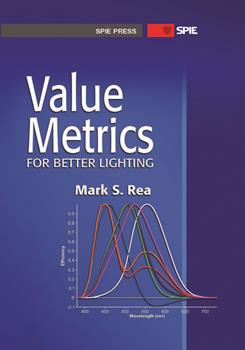|
We often do not fully understand what lighting can do for us. We know that we need lighting, but often that is as far as the thinking goes. We do a really good job, however, of conceptualizing the costs of those lighting systems because we can readily measure those costs. Reducing costs will certainly increase the value ratio for lighting if the benefits of the lighting system are held constant. Without a clear purpose for the lighting system, and no clear idea of benefits, there is little else that can be used in the value engineering process. This book is dedicated to the notion that our society undervalues light because we do not properly measure the benefits of light, in terms of both the lighting system and how it is applied. Consequently, we unnecessarily waste our natural and capital resources. The problems associated with inadequate light-measurement systems are not hard to grasp or even to fix, and are the subject of Value Metrics for Better Lighting. This book was written as a starting point for thoughtful consideration, discussion, and action by those vested in better and more-sustainable lighting, including manufacturers, practitioners, regulators, advocates, educators, and, of course, users. “It is a well-written review of the Lighting Research Center’s valuable contributions to the field of illumination engineering and architectural lighting design. Specifically, the overall organization, scope and argumentation of the manuscript are exemplary. It takes a premise -– '… we often do not fully understand what lighting can do for us' -– and presents a cohesive and detailed overview of the institution’s contributions to the field.”
“In my opinion, the topic is extremely exciting and the book might have a big impact on the lighting industry. I very much enjoyed reading it. I do not know of anybody else in this field who would be more qualified than Prof. Rea to write this book.”
|
-
Journals
- Advanced Photonics
- Advanced Photonics Nexus
- Biophotonics Discovery
- Journal of Applied Remote Sensing
- Journal of Astronomical Telescopes, Instruments, and Systems
- Journal of Biomedical Optics
- Journal of Electronic Imaging
- Journal of Medical Imaging
- Journal of Micro/Nanopatterning, Materials, and Metrology
- Journal of Nanophotonics
- Journal of Optical Microsystems
- Journal of Photonics for Energy
- Neurophotonics
- Optical Engineering
- Photonics Insights
- Ebooks



